-
What We Do
- WHERE WE WORK
-
About Us
 Welcome Message from Carol Jenkins
Welcome Message from Carol JenkinsFor more than 90 years, World Learning has equipped individuals and institutions to address the world’s most pressing problems. We believe that, working together with our partners, we can change this world for the better.
On my travels, I’ve had the opportunity to meet with many of those who have joined us in this mission. In Baghdad, we’ve trained more than 2,300 Iraqi youth who are already giving back at home. In London, our partners in the TAAP Initiative strongly believe that we are all responsible to practice inclusion. And in Vermont, our Experiment in International Living and School for International Training participants prove every day that they have the tools and the determination to change the world.
Please join us in our pursuit of a more peaceful and just world.
- Get Involved
Media Center > Story
Fighting Inhumanity with Humanity: How One Young Iraqi — and the NGO He Founded — Is Driving Change in His Community
April 29, 2019
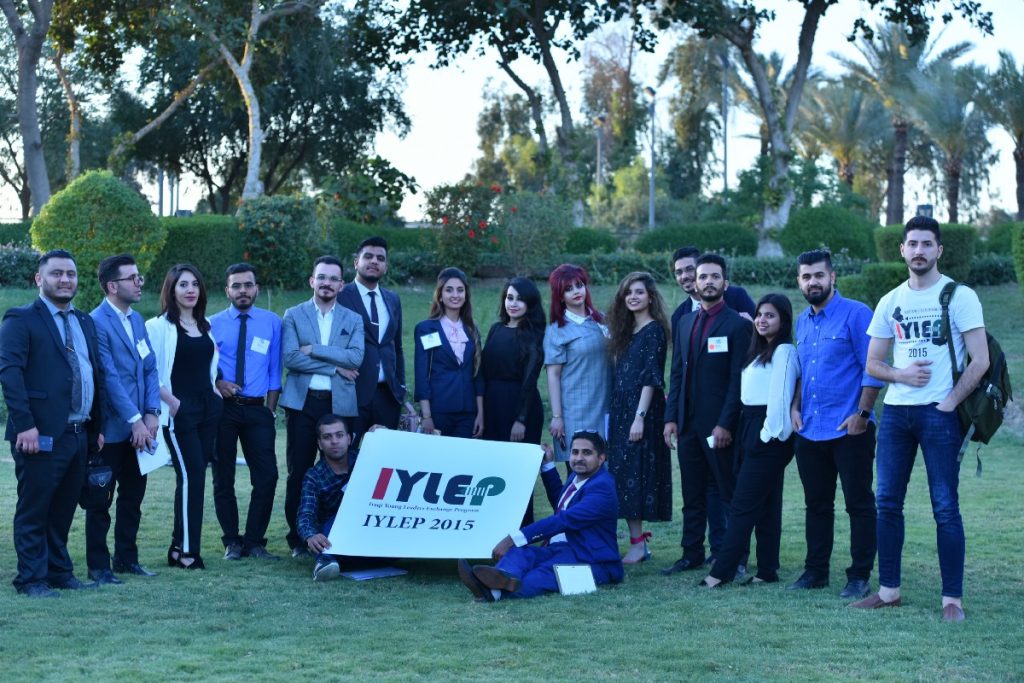
Thamir Elias Khidhir has witnessed the inhumanity that stems from intolerance and sectarianism because it has surrounded him his whole life.
Khidhir grew up in Duhok, a city in the autonomous northern region of Iraq known as Kurdistan. As home to many of the country’s ethnic and religious minority communities, Kurdistan has often been a haven for those fleeing violence and persecution. It’s also often caught in the crosshairs of sectarianism. In his young life of 24 years, Khidhir has been forced to leave home — for the city of Mosul or to neighboring Turkey — simply because he’s part of the Yazidi religious community.
Now Khidhir is fighting inhumanity with Humanity, a civil society organization he founded in 2014 that works to protect and empower women and children. “We focus on the most vulnerable people and we try to help them,” Khidhir says.
Seeking to continue the journey he began with Humanity, Khidhir traveled to the U.S. in 2015 as an undergraduate participant in the Iraqi Young Leaders Exchange Program, sponsored by the U.S. Department of State and implemented by World Learning. Khidhir says the four-week exchange “added a lot of experience, a lot of information, and helped me to become a better leader.” Its impact can be seen not only in his work, but in that of a growing number of young Iraqi leaders.
The Birth of an NGO
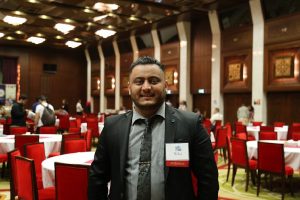 In 2007, al-Qaeda bombed the city of Sinjar, near Duhok, injuring or killing hundreds of Yazidi people. Horrified, Khidhir asked his father what he could do to help. His father counseled him to finish his studies before getting involved in humanitarian work.
In 2007, al-Qaeda bombed the city of Sinjar, near Duhok, injuring or killing hundreds of Yazidi people. Horrified, Khidhir asked his father what he could do to help. His father counseled him to finish his studies before getting involved in humanitarian work.
Seven years later, Sinjar was attacked again, this time by ISIS, who killed thousands and kidnapped hundreds of women and children. According to news reports at the time, as many as 200,000 Yazidis fled their homes, including tens of thousands stranded on the mountain range overlooking the city. This time, Khidhir was compelled to take action. He collected food items and brought them to Sinjar Mountain to distribute. “I saw thousands and thousands of people, people who have been on the mountain for days,” he says. “I wanted to do something for these people.”
Within weeks, ISIS insurgents had gained ground perilously close to Khidhir’s home in Duhok, forcing his family to flee to Turkey. “In Turkey we became refugees,” he says. But while his family decided it was time to leave Iraq for good and seek refuge in Europe, Khidhir wanted to make change in his community. He returned home a month after leaving.
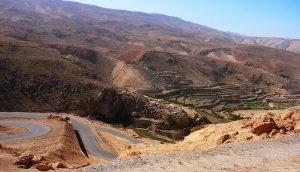 Crossing the border into Duhok, Khidhir saw hundreds of children displaced from their homes, living on the streets without toys. “I knew the feeling,” he says. “It is a feeling that I have had before, so I wanted to do something for these people.” He filled his car with toys and distributed them at shelters and among those living in tents. He posted about these efforts on social media and immediately received messages from friends who wanted to join. That network of volunteers even began receiving donations from followers in Europe.
Crossing the border into Duhok, Khidhir saw hundreds of children displaced from their homes, living on the streets without toys. “I knew the feeling,” he says. “It is a feeling that I have had before, so I wanted to do something for these people.” He filled his car with toys and distributed them at shelters and among those living in tents. He posted about these efforts on social media and immediately received messages from friends who wanted to join. That network of volunteers even began receiving donations from followers in Europe.
That’s when Khidhir had the idea to turn this informal network into a professional civil society organization. “We were basically doing what NGOs do, but we weren’t as professional even to know that,” he says. Though he was still just an undergraduate student at the University of Duhok, Khidhir formally registered Humanity as an NGO.
In the months that followed, Humanity grew even stronger through a partnership with the Danish relief organization Mission East. In June 2015, the NGO opened a community support center at the top of Sinjar Mountain, followed shortly by several other community centers that provide supplies, child protection, and psychosocial support. Humanity also formalized its volunteer program, offering young Iraqis access to professional development opportunities in exchange for their help.
Khidhir says it’s important to him to create these opportunities. “When we were establishing the organization, there was no one to go to for support,” he says. “Because we didn’t find someone to help us, we wanted to help [others].”
Becoming a Stronger Leader Through International Exchange
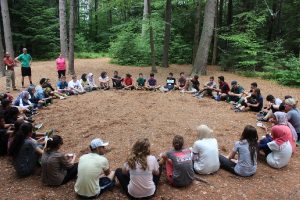 Though he’d managed to launch Humanity without any formal training, Khidhir wanted to become an even better leader. So, in 2015, he applied and was selected to join that year’s IYLEP undergraduate cohort, which took him to Ball State University in Indiana as well as Washington, DC.
Though he’d managed to launch Humanity without any formal training, Khidhir wanted to become an even better leader. So, in 2015, he applied and was selected to join that year’s IYLEP undergraduate cohort, which took him to Ball State University in Indiana as well as Washington, DC.
IYLEP’s programs provide training in civic engagement, peacebuilding, and leadership, and the undergraduate program also allows participants to specialize in themes relevant to their careers or study. Khidhir pursued IYLEP’s community development and entrepreneurship theme.
Through IYLEP’s workshops and community visits, Khidhir learned how to better network with potential donors and write effective proposals — skills he needed to turn Humanity into an even more robust organization. As Khidhir notes now, “I started leading the volunteers and the employees that were working with me in a better way. It helped me a lot to be a better person, a better leader.”
But the IYLEP experience was eye-opening for Khidhir in other ways as well. Though he had taught himself English by watching hours upon hours of movies, Khidhir soon realized that U.S. culture was not what he had expected. For example, he had thought the whole country was fraught by racial tensions, so was surprised that he was placed with a biracial family for the homestay portion of his exchange.
Khidhir says experiencing such diversity — as well as the diversity within his own cohort — made a difference for him and his fellow IYLEPers. “Going to the United States, we would go as Iraqis,” he says. “We wouldn’t go as Kurds, Arabs, Christians, Yazidis, or Muslims.”
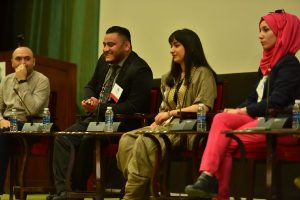 Last year, Khidhir attended a conference World Learning hosted in Baghdad celebrating 10 years of IYLEP exchanges. There, he reflected on how IYLEP and other international exchange programs have spurred a change among Iraqi youth who are engaging in their communities and developing their own small businesses. “[Exchange programs] open our eyes to the outside world to help in giving us the idea to do this work,” he says.
Last year, Khidhir attended a conference World Learning hosted in Baghdad celebrating 10 years of IYLEP exchanges. There, he reflected on how IYLEP and other international exchange programs have spurred a change among Iraqi youth who are engaging in their communities and developing their own small businesses. “[Exchange programs] open our eyes to the outside world to help in giving us the idea to do this work,” he says.
But while Khidhir has had other opportunities to study and live abroad — he was accepted into a master’s degree program in Germany, where his family now resides — he’s decided to stay put. Not only does he want to continue his work with Humanity, but he believes it’s the responsibility of young Iraqis like him to rebuild their country.
“If we don’t do it for our community and ourselves, we will never be able to develop,” he says. “That’s one of the reasons why I want to help the community myself. I want to become a better person in order to provide better services. That’s why I’m staying.”





